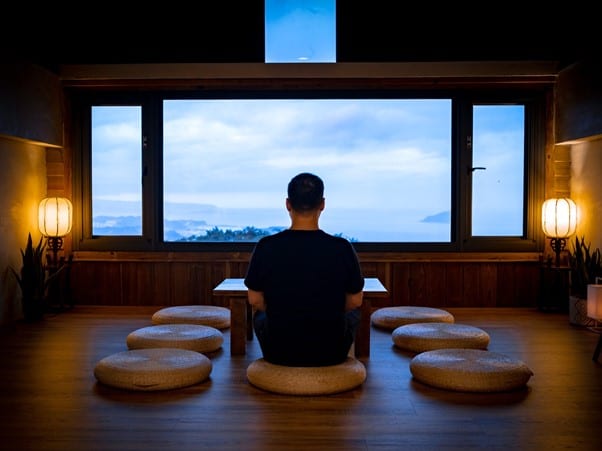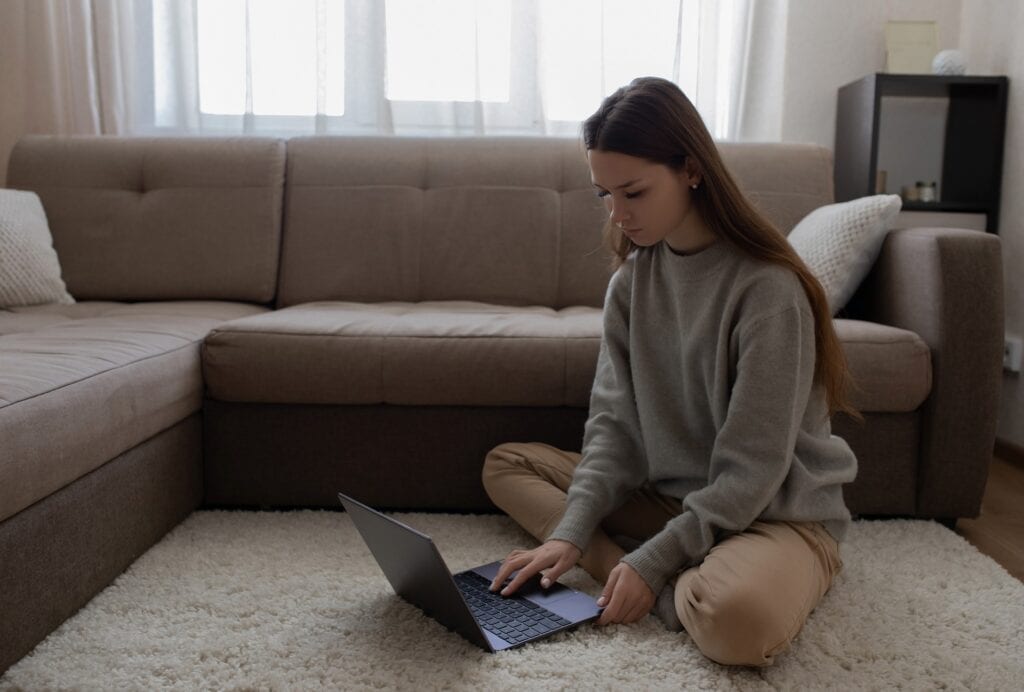|
|
Until recently, there was a stigma associated with discussing mental health, especially in the workplace. There was a fear that we would be considered “weak” and unfit for the additional stress that often accompanies promotion if we revealed that we were struggling.
Thankfully, the mental health taboo is steadily breaking down and we are talking a lot more about burnout, maintaining the work-life balance, and mindfulness in the workplace. But while many companies are introducing programs to support the mental health of their employees, these programs aren’t yet properly tailored to deal with the remote workforce, and even less with digital nomads who may be clocking in from the other side of the world.
Whether you are a remote employee or an independent freelancer, monitoring and taking care of your mental health is largely in your own hands. Even if you work for a company that provides valuable mental health resources, you are the one who needs to realize that there is a problem and seek out help.
If you are in the office most days and having face-to-face time with colleagues, the hope is that someone will notice if you are struggling. The same can be true if you are at home, where family and friends who know well can often tell if something is not quite right. But if you are on the road, especially on your own, you need the self-awareness to know when you are struggling.

Identifying a mental health issue
Every person is different, so it is not always easy to identify when someone is struggling with their mental health. Nevertheless, there are a few common ways that people tend to respond when they are struggling with burnout or excessive stress. You can look for these symptoms within yourself.
- Withdrawal – you may find that you no longer feel motivated to stay in touch with people back home, or you don’t want to put the effort in to meet people where you are.
- Low or erratic energy – you may find that you feel lethargic and struggle to motivate yourself or find that in one moment you need to run around and do everything, but the next you just want to lie down and do nothing.
- Change in appetite or sleep – you may find that you are suddenly hungry all the time or just not interested in food, or that you can’t sleep but need naps at unusual times of the day.
- Problems thinking or focusing – you may find that you can’t focus on deep work, struggle with routine problems, and become easily distracted.
- Change in emotions – you may find that your emotional responses change and you become overly sensitive to certain things while feeling disconnected or numb about others.
The key to identifying whether you may be struggling with your mental health is self-awareness. This means taking time out from the bustle of daily life to check in with yourself and ask how you are doing. It can help to be aware of the mental health challenges most prominent among digital nomads.
If you think that something is not right, the best thing you can do is get help. If your employer offers mental health services, it might be time to tap into those. Calling a loved one that you trust and checking in can also be a pathway to finding help.
Speaking to a therapist can also be a useful tool, and there are many virtual therapy providers that can help you connect with a therapist via video call. You should be aware that while some virtual therapy providers can prescribe medication if you are accessing the service internationally, you almost certainly won’t qualify for a prescription.
Try BetterHelp, Talkspace, or Cerebral for well-reviewed and trusted therapists who provide talk therapy. You can also check out our list of the best apps for digital nomad self-care.

Tips for managing your mental health as a digital nomad
The best way to protect and maintain your mental health while living and working as a digital nomad is to organize your life to protect yourself against the mental health challenges that often accompany burnout, excessive stress, and isolation. Below are several strategies to consider.
Manage your workload
One of the biggest work-related stresses, for everyone, is having too much work to do and not enough time in which to do it! This is because we tend to say yes to new opportunities without considering what we will stop doing to make space for them.
This is a big problem for freelancers building their portfolio, and for remote workers who worry that they are seen as less productive because they happen to work from someone with a very nice beach!
But if you do too much, you tend to do everything to a lower standard, adversely affecting your performance.
Read our guide to balancing freedom and discipline as a digital nomad.
Establish clear lines between work and leisure
If you are burning the candle at both ends in the office, it is pretty obvious that you are working too much! But if you work remotely and your workspace and your personal space blur into one another, it can be easy for work to eat into your personal time.
When you are using the same space, and the same devices, such as your laptop and smartphone, for both business and personal activities, you need to create barriers that help you stay in work mode when you are working and out of it when you aren’t.
For some people, this just means setting strict rules for yourself and following them. For others, you may need to invest in applications that help silence work notifications when needed.
Read our guides to balancing your work life and social life as a digital nomad, and maintaining boundaries as a digital nomad.

Plan and emergency plan
As well as work-related stress, digital nomads invite a range of new stresses into their lives. Missed flights, Airbnbs that are nothing like described, unreliable Wi-Fi, losing important personal items, submitting visa applications on time, waking up for video calls in the middle of the night, hitting deadlines when you are on the road, and settling into new locations on a regular basis.
Everyone has stress in their lives, but the lack of stability that comes with being a digital nomad can become a major source of stress if you let it.
The answer to this is to plan ahead and plan in detail. Make yourself a checklist of everything you need to do before setting off to a new location and use it!
Also, invest in emergency planning, so you know what you will do in case of a crisis. This may involve getting comprehensive travel insurance, paying for an expensive personal hotspot as backup internet, and reserving travel funds to cover a few nights in a good hotel if you need it.
Read our guide to what to do when things go wrong with an Airbnb booking.
Embrace slowmadism
The most stressful time for digital nomads is when they are between locations. Getting transport, finding accommodation, and setting into new places and new routines is hard. The more often you do this, the more stressed you are likely to feel.
Also, if you only stay somewhere for a short period of time, right when you are settling in and starting to make friends is the moment that you need to pack up and move on.
This is why many digital nomads are embracing slowmadism, which basically just means spending more time in one place and getting to know the people, place, and surrounding area better before moving on. It reduces stress and means that you can form more than a superficial relationship with new places.
Read our complete guide slowmadism and its benefits here.
Take regular “No-Screen” time
Digital nomads tend to spend a lot of time looking at screens: for work, to stay in touch, to book travel, and more. Excessive screen time is associated with an increased risk of anxiety and depression. It can also lead to not being present for experience and developing a fear of missing out.
Digital nomads should be conscious of their screen time and schedule breaks. A digital detox every few months is great, but it is better to have time each day that you spend without a screen, and maybe a day a week when screens are forbidden.
Read our guide to how to live in the present as a digital nomad here.

Take holidays
Aren’t digital nomads always on holiday? No! When you take a vacation from work, you don’t necessarily need to travel anywhere to feel the benefits. The idea is to not think about work and its related responsibilities for a while to release stress and let your body and mind reset. If you are working while traveling, you are not getting the benefits of a vacation.
Read our guide to why digital nomads need holidays, and how to take a vacation as a digital nomad.
Develop healthy routines
A lot of different things go into a healthy lifestyle, but a lot of those things are the first things to disappear when we are living on the road. A regular exercise regime, healthy diet, stable sleep patterns, and hobbies that enrich our lives can all be difficult to maintain while traveling. But these not only enrich our lives but secure our mental and physical health.
Read our guides to staying fit as a digital nomad, eating well, and getting a good night’s sleep on the road.
Build a community
Several recent surveys into the digital nomad lifestyle have shown that loneliness is the number one challenge that most digital nomads face.
It can be hard to maintain close relationships with friends and family with different lifestyles, and challenging to create genuine new friendships with time, language, and culture as barriers. This not only results in loneliness but could mean that you don’t have anyone checking in with you and ensuring that you are OK.
Maintaining relationships with friends and family back home and making an active effort to meet new people where you are may be the most important things that you can do to protect your mental health. Joining established communities of digital nomads that may be facing similar challenges and look out for one another can also be an essential lifeline.
Read our list of the top digital nomad communities to join.

Remote work and the future of mental health
As remote work and digital nomadism become more common, businesses need to step up and take greater responsibility for supporting the mental health of all their workers, all over the world. This means investing in appropriate tools and removing barriers to access.
Airbnb, which has a remote-first work policy, introduced remote mental health support through KonTerra when they reduced their workforce in 2020. In contrast, in 2023 Google made redundant their Director of Global Health and Wellbeing.
We will have to wait and see what direction the industry goes in as a whole, but for now, digital nomads should be proactive about managing their own mental health.
Does your company have a mental health program? What do you think of it?












